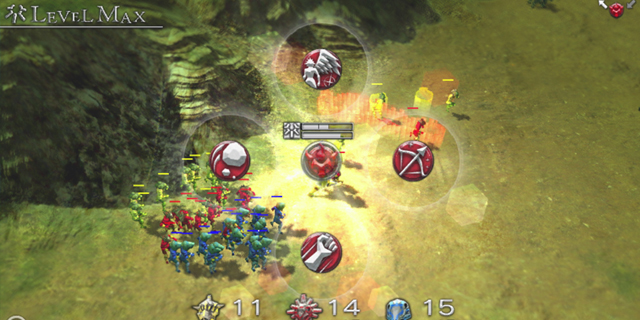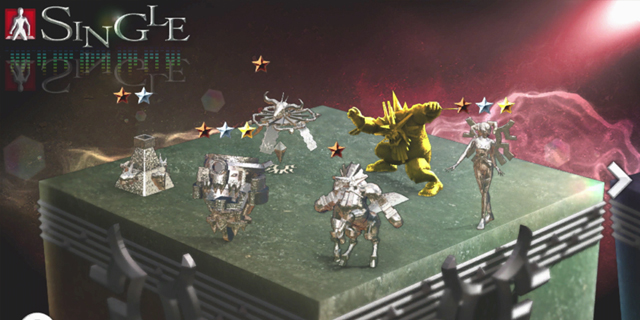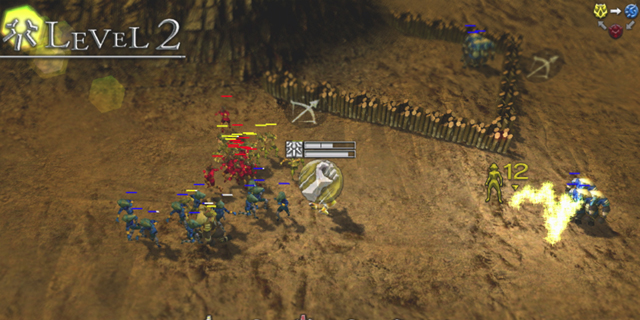
Orgarhythm, the latest release from Acquire and XSEED, is a peculiar game in many ways. This download-only Vita title has rhythm and strategy at its core, but while it resembles Patapon at first glance, the experience of playing it shares few of the same qualities.
You play as a god controlling followers of three colors. The groups have no special abilities outside of being strong against each other: red beats yellow, yellow trumps blue and blue has the upper hand against red. You can send them to attack in three different ways. Hand-to-hand combat does the most damage. Ranged combat can shoot past barriers and hit enemies from afar. Catapult teams can reach higher elevations, and while they attack sparingly, the projectile shots can pack a punch.

All of this is taking place to the beat of the game’s distinctive soundtrack. In practice, it works like a combination of Patapon and Pikmin. You tap the god in the center, then tap one of the three colors, then tap the attack type, then drag your finger along the area you’d like them deployed. The longer the line, the more units sent out to do that task. Tapping to the beat levels up your units; missing a beat takes you back down. Not tapping anything for a few seconds does the same thing, so you need to keep tapping even when there are no on-screen tasks. (Given that the game is on rails and choreographed to the beat, if you dispatch enemies correctly, there are many moments like this.)
In addition to the three colors, you can trigger support tasks, like healing and special damage to foes. These are crucial, as you can’t lose units early and successfully take on enemies later, but you’re rarely given the time to let them rest and recuperate when you need it.

In many ways, though, Orgarhythm isn’t a happy game like its two likely inspirations. The game’s brutal. While there’s a tutorial to explain basic actions, the levels themselves tend to introduce elements and just let you lose at them a few times until you luck into the right strategy. There’s little margin for error; even messing up a rhythm once in the middle of an end-level boss takes away just enough damage to lose you the whole thing.
The tapping is rough for a long stretch of the game; eventually it clicks, but for hours you’re just wishing the game would use the Vita’s face buttons for its four actions. (It doesn’t. In fact, at no point does the game ever use buttons.) And once the game really gets to you, once you start having the fun it always intended, it’s over.
Orgarhythm‘s only a few hours long, and though there’s an ad hoc co-op mode to try if you can manage it and there are minor boosts to unlock and equip, it’s just not as exciting to replay a level you’ve beaten. There are leaderboards; it certainly takes to-the-millisecond skill to ascend them, but it’s not going to be for everyone.
It’s a tough situation for Orgarhythm. It doesn’t leave a great first impression, but if you dedicate some time, you’ll see the magic and then see it gone. The end result is a game to jump into intensely for about a week, never to return. That said, it’s an experience that’s not soon forgotten. It’s a rarity in games, one that couldn’t conceivably have been localized and was, and the real question is how much you’ll pay, and how much you’ll endure, in the chase for the eclectic.
Pros: Interesting concept, memorable gameplay, rewards success
Cons: Sometimes punishing, a bit shallow, zero buttons ever



















